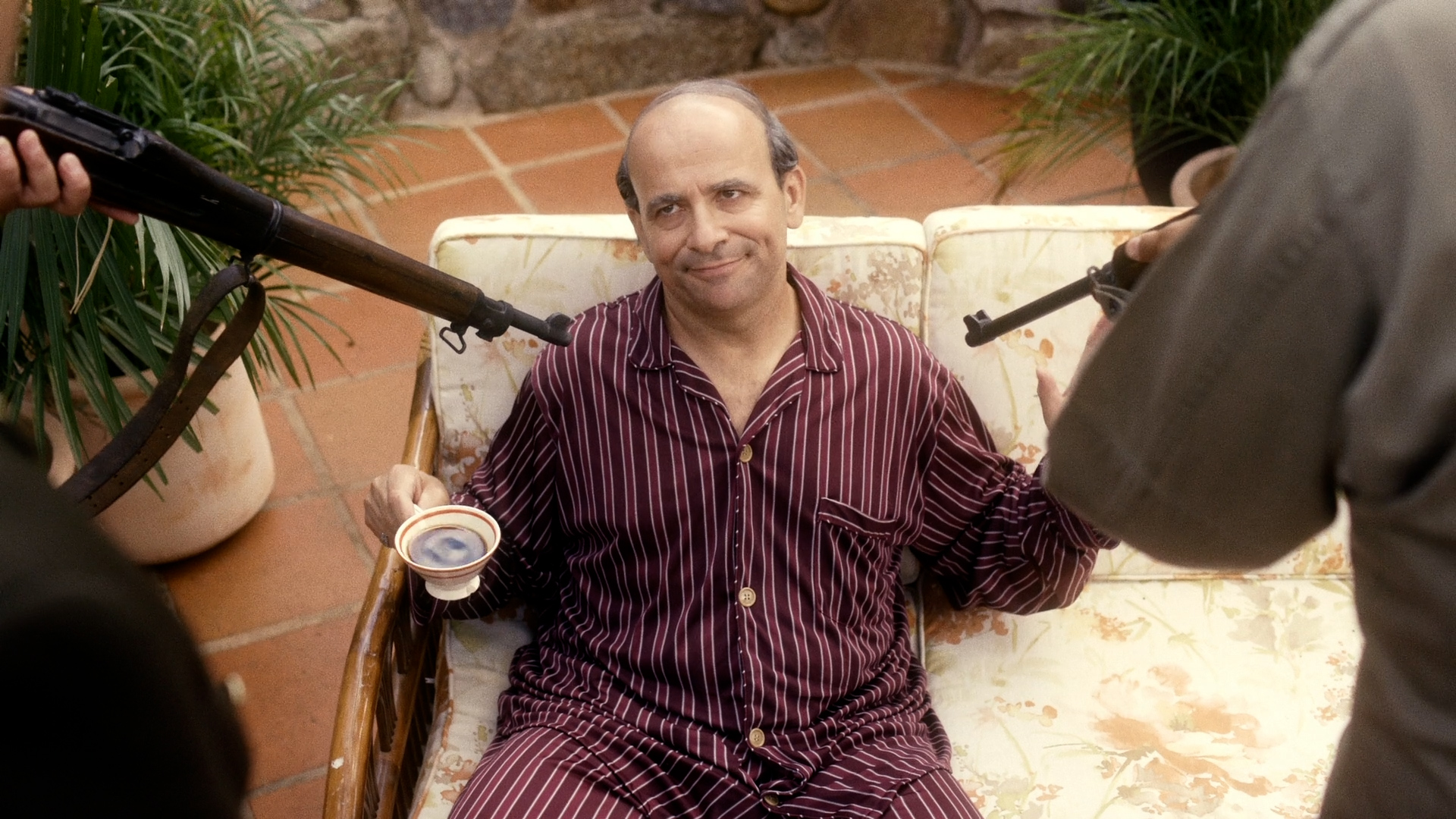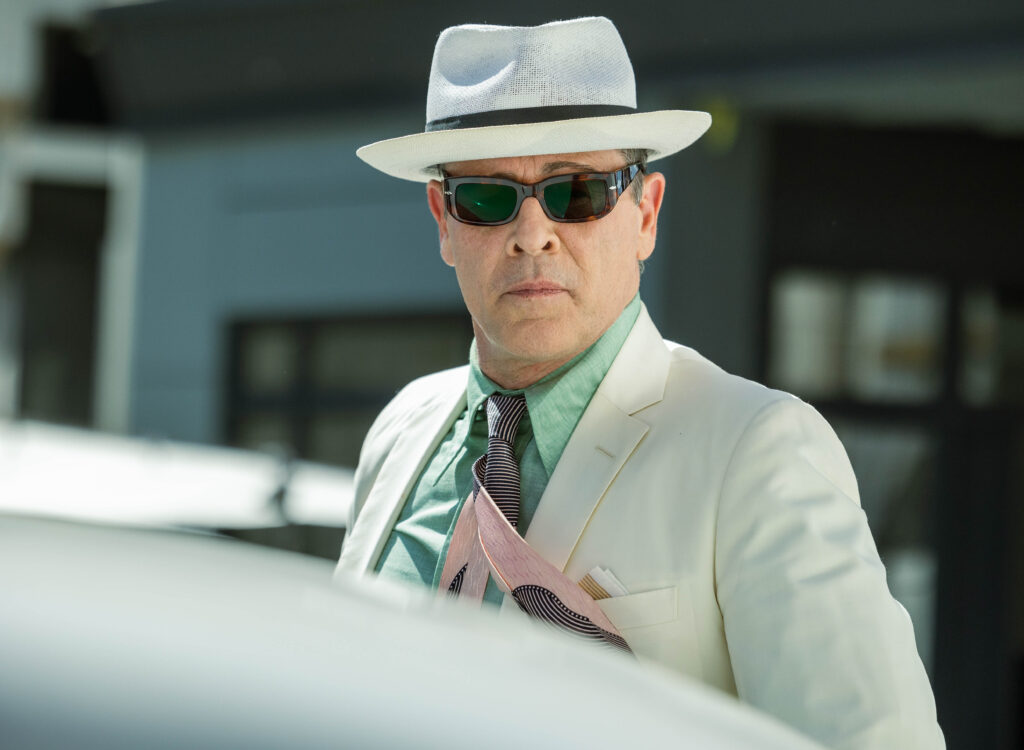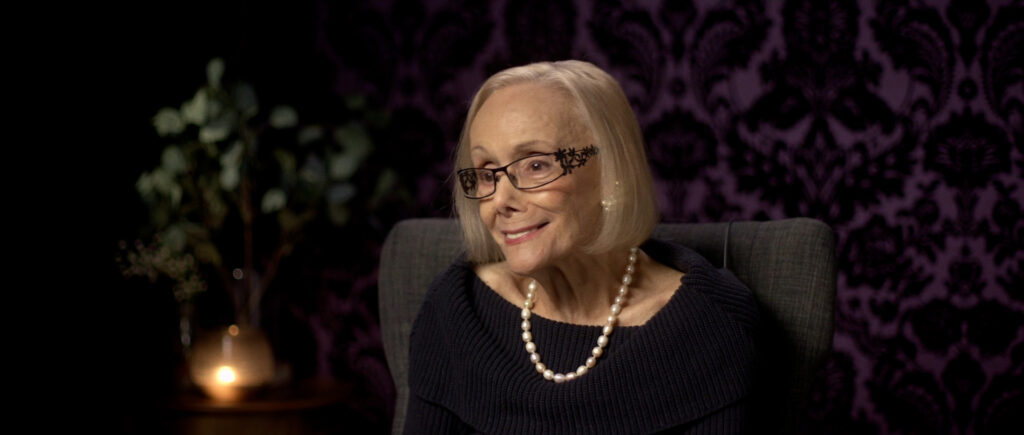
CIA, Mob team up to topple Fidel Castro in Paramount Plus docuseries ‘Mafia Spies’
New series delves into Mafia’s role in years-long effort to take out Cuban leader

The CIA’s alliance with the Mafia during the Kennedy years to assassinate Cuban leader Fidel Castro is at the center of a new Paramount Plus original docuseries called Mafia Spies.
Using historical footage and contemporary interviews, the six-part series brings viewers inside 1950s wide-open Havana, when mobsters controlled the Cuban capital’s casinos, and then examines Castro’s takeover of the island nation and the U.S. government’s clandestine efforts to kill him.
Among other schemes, including the failed 1961 Bay of Pigs invasion, attempts to eliminate Castro included poison pills and a scuba-diving wetsuit laced with a deadly substance. None of this was successful, strengthening Castro’s image among his followers. Castro ruled Cuba for decades, dying of natural causes at age 90 in 2016.
“Mr. Castro’s defiance of American power made him a beacon of resistance in Latin America and elsewhere,” the New York Times reported at his death, “and his bushy beard, long Cuban cigar and green fatigues became universal symbols of rebellion.”
‘Incredibly wild’ story
The Paramount Plus series is based on the book Mafia Spies: The Inside Story of the CIA, Gangsters, JFK, and Castro by Thomas Maier. Executive producers Tom Donahue and Ilan Arboleda were made aware of the book and became “instantly captivated by the incredible true story and its vast potential,” Donahue said in an email.

As the series explains, U.S. officials were concerned that Castro’s compact with the nuclear-capable Soviet Union posed a security threat, since the Caribbean country is only 90 miles south of Florida. Meanwhile, Mafia figures were upset at Castro for tossing them off the island after he overthrew the previous regime in early 1959, ending the Mob’s lucrative gaming empire in Cuba.

From that cauldron, the CIA-Mafia alliance was born, involving a James Bond-like world of subterfuge and betrayal, resulting in U.S. congressional hearings. By 1976, two mobsters involved in the anti-Castro effort, Sam Giancana and Johnny Rosselli, were slain, presumably to keep them quiet about the plot, though neither killing has been solved. Giancana was shot to death at his home in Oak Park, Illinois, west of downtown Chicago. Rosselli’s body was recovered from a 55-gallon oil drum in a bay near Miami.
A third mobster, Santo Trafficante Jr., was thought by some to have been a double agent secretly assisting Cuba, too. He died in 1987 in Houston, where he had gone for heart surgery.

The Paramount Plus series ties together the sex scandals, deceit and tragic events, including President John Kennedy’s 1963 assassination in Dallas, that marked this period as a dark chapter in U.S. history.
Donahue said the true story of that era is so “incredibly wild” that he and his team didn’t need to embellish any facts to make it compelling. One compelling aspect is that the story is told from both U.S. and Cuban points of view.
“We traveled to Cuba and interviewed former Castro intelligence operatives and former child soldiers who fought on the Cuban side during the Bay of Pigs,” Donahue said.
According to the New York Times, Castro throughout his years in power repeatedly defied the U.S., “bedeviling 11 American presidents and briefly pushing the world to the brink of nuclear war.” Castro wielded power “like a tyrant,” overseeing a totalitarian government that had “admirers and detractors in Cuba and around the world.”
“Some saw him as a ruthless despot who trampled rights and freedoms,” the newspaper reported, while others hailed him “as a revolutionary hero for the ages.”
CIA-Mafia plots fail
The Paramount Plus series features popular personalities such as Frank Sinatra and Phyllis McGuire, who were linked to underworld figures. Also featured are U.S. cities that had an important connection to what was going on in Cuba.
These people and places are examples of the way dangerous global politics can have a lasting impact even on popular culture.

“With its retro atmosphere, entertaining narrative, and even a cameo from Sinatra, we saw a chance to create something both fun and historically significant,” Donahue said.
He added that the project stands out for its “unique blend of espionage, organized crime and political intrigue.”
“Set against the vibrant backdrop of 1960s Los Angeles, Palm Springs, Las Vegas, Chicago, Miami and Havana, the series offered a thrilling opportunity to explore classic spy and gangster movie tropes while shedding light on a pivotal moment in American history,” Donahue said.

The executive producer said as viewers watch the series, he hopes they take away from it a “crucial lesson about accountability and the dangers of unchecked power.”
“The series sheds light on the darker aspects of U.S.-Cuba relations and the consequences of secretive organizations like the CIA operating with impunity,” Donahue said.
This theme runs throughout the series, beginning with the hedonistic pre-Castro years and ending in the public’s awareness that U.S. authorities at the highest level joined forces with criminal operatives in attempting to assassinate a foreign leader.
In the first episode, Todd Fisher, son of entertainers Debbie Reynolds and Eddie Fisher, sums up the way visitors viewed Cuba when the casinos were in full swing. Havana’s popularity as a free-wheeling gaming destination overshadowed Las Vegas, which would blossom in the desert and attract more than its share of mobsters, especially after Castro’s takeover in Cuba.
“My parents would go party in Cuba,” Fisher says, adding that it was “a cool place” with gambling and drinking.
By the final episode, change had occurred there and in the United States. The U.S. government’s efforts to topple Castro would cast a dark cloud over its covert operations.
As Castro’s dictatorship began to take hold, the mindset north of Cuba had been that the United States was a superpower that “could play the game of risk and win,” journalist and author David Corn says.
“But the secret war against Castro and Cuba failed,” he says, “and Castro survived for decades.”
Larry Henry is a veteran print and broadcast journalist. He served as press secretary for Nevada Governor Bob Miller and was political editor at the Las Vegas Sun and managing editor at KFSM-TV, the CBS affiliate in Northwest Arkansas. Today, he is a senior reporter for Gambling.com.
Feedback or questions? Email blog@themobmuseum.org





